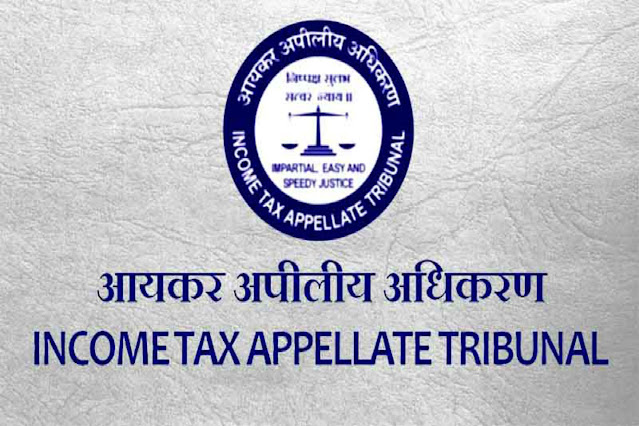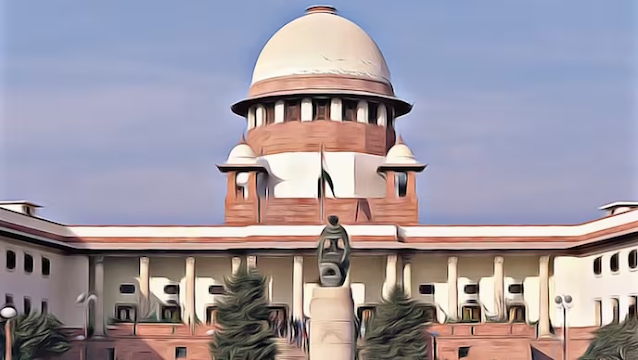B. Panigrahi, J.@mdashThe Plaintiff in Title Suit No. 213 of 1996 of the Court of the Civil Judge (Jr. Division), Kujang has filed this appeal against the judgment and decree passed by the first Appellate Court in R.P.F. Case No. 44/2002 whereby and whereunder the First appellate Court confirmed the judgment and decree of the learned trial Court. The Plaintiff-Paradip Port Trust has filed a suit for permanent injunction restraining the Respondent No. 1, Managing Director, Industrial Infrastructure Development Corporation (hereinafter referred to as ''IDCO'') from coming over to the suit schedule land and from interfering with the Plaintiff''s possession in any manner whatsoever.
2. The Plaintiff is a statutory body established under the Major Port Trust Act, 1963. The Government of Orissa decided to establish a harbour at confluence side of river Mahanadi and accordingly, the Paradip Port Trust was established some time in 1962 at Paradip. In different phases under the strength of several notifications, the suit land along with the other lands were proposed to be acquired for creation of Paradip Port Trust. It is stated that the suit land was situated in Mouza-Bhitargarh referring to different Sabik Khatas comprising an extent of Ac.119.22 dec. The Plaintiff, therefore, has claimed possession over the aforesaid land continuously and uninterruptedly without any interference from any quarter. Subsequently, by an Act of the Government all assets and liabilities including all movable and immoveable properties were transferred to the control and management of the Government of India on 31.5.1965, as per the notification in Commerce Department bearing No. 2032/PDP dated 21.05.1965. Thus, the Central Government took over the management of the Paradip Port. The acquisition of the land from time to time was ratified by the Ministry of Shipping and Transport Department, Government of India on 16.11.1975. Therefore, the land upon which the Paradip Port situated has fully and completely vested in the Paradip Port Trust. It is further stated by the Plaintiff that a premium of Rs. 26,87,298.30 paise was paid through Tahasildar, Kujang. The aforesaid land was also recorded in the name of the Plaintiff in the Hal R.O.R.
3. It is alleged by the Plaintiff that the Defendant No. 1 without having any vestige of right, title, interest and possession over the suit land filed different mutation proceedings bearing Nos. 3316 to 3346 of 1995 claiming that the suit lands were transferred to them by way of a lease deed executed by the then Collector, Cuttack on 22nd September, 1988. As these lands already vested in the Paradip Port, there was no occasion, therefore, for the Collector to create such lease deed in favour of the Defendant No. 1. The lessor i.e. the Collector, Cuttack having no right to create such lease deed, therefore, those are void ab initio.
4. The case of the Respondent No. 2 in the trial Court is that the suit at the instance of the Plaintiff is not maintainable. The land in question does not lie within the territorial limit of the Paradip Port Trust. The suit land has never vested in Paradip Port Trust. Therefore, it cannot claim any right, title, interest and possession over such land. The acquisition of land was also denied. A stand was taken by the Defendant No. 1 that an extent of Ac.388.68 dec. of land including the present suit land measuring Ac. 118.92 dec. of Mouza Bhitargarh was acquired by the Commerce and Transport Department of the State of Orissa in 1960 for development of Paradip Port Trust. This acquisition of suit land was made after Paradip Port surrendered the land to the State Government, which was notified by Notification No. 4658 dated 24.12.1992.
5. IDCO was established under Act 1 of 1981 for providing industrial infrastructural facilities to promote industries. Such land was necessary for setting up Daitari Steel Plant, P.P.L. Project and Paradip Railway Station. It is further alleged by the Defendant No. 1 that Paradip Port agreed to transfer an area of Ac.426.00 near the Railway Station for creation of P.P.L, but on condition of getting an equal extent of land in exchange. As per the agreement, the Government of Orissa took a policy decision for transfer of 90 acres of land from Fishery Department, Ac.43.00 from Irrigation Department, Ac.243.00 from Commerce Department and Ac.50.00 from Revenue Department. Thus, an area of Ac.388.68 dec. acquired by the Commerce and Transport Department, of the State of Orissa for the development purpose of Paradip Port Trust remained unutilised and it was, therefore, decided that out of the above area, Ac.243.00 shall be carved out for transfer in favour of Paradip Port in lieu of Appellant''s surrendering Ac.426.00 of land for creation of P.P.L.
6. The Government in Commerce and Transport Department surrendered the entire Ac.388.68 dec. in Mouza Bhitargarh in favour of the Revenue Department with a view to transfer the same to Defendant No. 1, who would transfer Ac.243.00 in favour of the Plaintiff to make good of the exchanged land, which was already transferred by the Plaintiff. The balance Ac. 145.68 dec. representing the unutilised land out of Ac.388.68 dec. which was in possession of the Commerce and Transport Department deducting Ac.243.00 of land given in exchange was kept in possession with the Defendant No. 1. When Defendant No. 1 intended to lease out different parcels of land for setting up industries the Plaintiff objected that the exchanged land of Irrigation Department to the extent of Ac.43.00 was not free from encroachment by private persons and therefore, claimed for replacement and adjustment of the aforesaid area. Accordingly, out of the balance Ac.145.68 dec. an equal area was exchanged to the Plaintiff and the balance area of Ac.118.70 dec. of Bhitargarh Mouza remained with the Respondent No. 1 to be leased out for setting up different industries. It is further claimed by Defendant No. 1 that a lease deed was executed being No. 4156 dated 22nd September, 1988 by the Tahasildar, Kujang showing that Ac.388.68 dec. was delivered to Respondent No. 1. The Plaintiff could not have claimed title over the suit land on the basis of wrong entry in the record of right. The Defendant No. 1 thereafter executed several lease deeds from out of the suit land in favour of Nilachal Flourida and total gas. It has been denied that there was a joint survey conducted so that it could bind Defendant No. 1. The lease premium claimed to have been paid by the Plaintiff does not relate to the suit land. With these allegations the Defendant No. 1 prayed for dismissal of the suit.
7. There were 7 issues framed by the trial Court. The learned trial Court after considering the evidence was however, inclined to dismiss the suit. Being aggrieved by the judgment and decree of dismissal of the Plaintiff''s suit, it has filed an appeal before the Addl. District Judge, Jagatsinghpur and it is alleged that the learned first appellate Court without dealing with the fact situation of the case and without discussing the evidence confirmed the findings of the trial Court.
8. Mr. Mohanty, learned Advocate appearing for the Appellant at the out set has drawn my attention to the fact that the first appellate Court being the final Court of fact has unfortunately not dealt with the evidence, save and except, simply concurred the findings of the trial Court. In that case it has no scope to challenge the factual aspect which has been erroneously accepted by the first appellate Court.
9. Mr. Ray, learned Senior Advocate appearing for the Respondents has made an unsuccessful attempt to support the findings of the appellate Court. Be that as it may, since the first appellate Court being the final Court of fact, it was imperative upon it to discuss the evidence at length placed before it, and it could have come to an independent finding in either way. But, without doing so, it has shrunk its responsibility being the final Court of fact to discuss the evidence of the trial Court at length.
10. The important question comes to the fore for consideration is whether in the fitness of things, this Court could remand the appeal for rehearing of the same or not. Prior to insertion of Rule 23A under Order 41 of the CPC before amendment in 1976, there were only two provisions contemplating remand by a Court of appeal. Order 41, Rule 23 CPC only applies when the trial Court disposes the entire suit by recording its findings on a preliminary issue without adverting to the other issues and findings, but findings on preliminary issue if set aside in the appeal, then it can remand to the trial Court. Rule 25 of Order 41, CPC applies when the appellate Court notices an omission on the part of the trial Court to frame or try any issue or to determine any question of fact which, in the opinion of the appellate Court, was essential for the right decision of the suit on merits. However, it is recorded as a settled position of law, before amendment that the Court in appropriate case should exercise its inherent jurisdiction u/s 151 of the CPC to order a remand, if such remand was considered pre-eminently necessary, though not covered by any specific provisions of Order 41 of the CPC After amendment, Rule 23A has been inserted under Order 41, CPC which provides for a remand by an appellate Court upon hearing an appeal against a decree if (i) the trial Court has disposed of the case otherwise than on preliminary point, and (ii) the decree is reversed in appeal, re-trial is necessary. On twin conditions being satisfied, the appellate Court can exercise the same power of remand under Rule 23A as it was more or less the same as under Rule 23. To put it in other words, if it finds that the judgment under appeal has not disposed of the case satisfactorily in the manner required by Order 20 Rule 3 or Order 41 Rule 31 of the Code of Civil Procedure, hence it is no judgment in the eye of law and it may set aside the same or send the matter back for re-writing the judgment so as to protect the valuable rights of the parties. The appellate Court should circumspect to direct remand when the case is not covered either by Rule 23 or Rule 23A or Rule 25 under Order 41 of the Code of Civil Procedure. In addition, the judgment of the Hon''ble Supreme Court in 1 (2002) CLT 163 in the case of P. Purushottam Reddy and Anr. v. Pratap Steels Ltd. has mandated that an order of remand may be necessary in a case where the appellate Court has not disposed of the case satisfactorily in the manner as required under Order 41, Rule 31 of the Code of Civil Procedure.
11. I am aghast to note that the lower appellate Court has avoided its responsibility in discussing at length about the case of both the parties and their relative merits and disposed of the same in undue haste.
12. In the aforesaid premises, I have therefore, no other option but to set aside the findings of the first appellate Court and remit the same back to the first appellate Court with a direction to discuss the evidence in its proper perspective and arrive at legal and reasonable conclusion. While disposing of the appeal, it shall assign adequate and sufficient reasons in support of his conclusion. The first appellate Court may do well in disposing of the appeal within 4 months from the date of receipt of the record. Since both the parties have already entered appearance in this case, in order to save time for disposing of the appeal by the first appellate Court, I direct them to appear before the first appellate Court on 24th March, 2003 without any further notice.
13. The appeal is accordingly allowed, but in the circumstances without cost. L.C.R. be sent down immediately.

